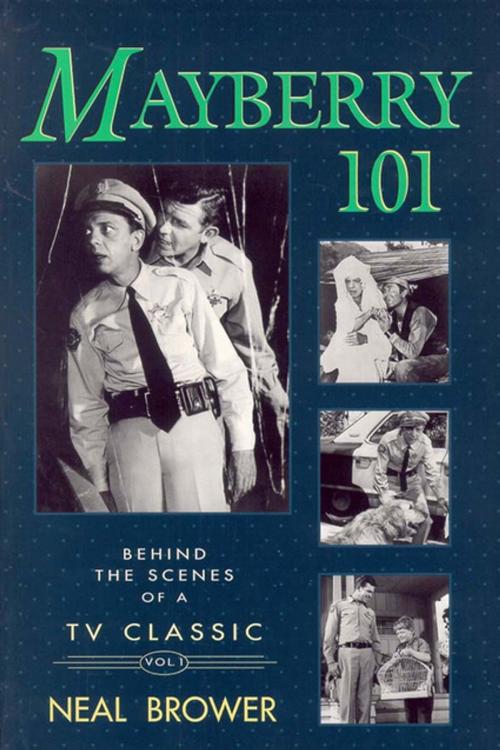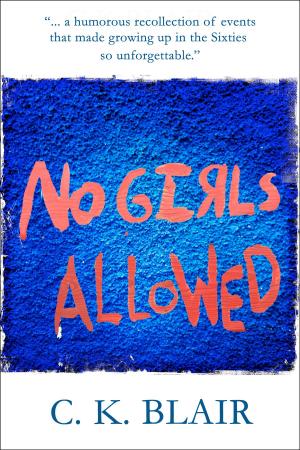Mayberry 101
Behind the Scenes of a TV Classic
Nonfiction, Entertainment, Performing Arts, Television, Reference| Author: | Neal Brower | ISBN: | 9780895874436 |
| Publisher: | Blair | Publication: | February 17, 2013 |
| Imprint: | Blair | Language: | English |
| Author: | Neal Brower |
| ISBN: | 9780895874436 |
| Publisher: | Blair |
| Publication: | February 17, 2013 |
| Imprint: | Blair |
| Language: | English |
On October 3, 1960, The Andy Griffith Show began its eight-year reign as one of the top-ten television shows in the country. Now, almost 50 years later, the original 249 episodes still remain among the most frequently watched syndicated shows on television. In 1991, Neal Brower began to write a regular column called "Professor Brower's Class" in The Bullet, the newsletter for the show's fan club, The Andy Griffith Show Rerun Watchers Club. The Bullet, which was published three times a year, was distributed to approximately 15,000 members of the 1,000 worldwide chapters. In his column, Brower focused on one of the show's episodes. Through interviews with writers, directors, producers, actors, and other people associated with the show, Brower offered insights into the scriptwriting, production, photography, casting, and musical scoring. Although Brower's first few columns consisted primarily of his personal observations and comments about the episode, later columns concentrated on letting the participants tell the Mayberry story. Brower realized that the pace of writing only three episodes a year was too slow a process. The stories that he discovered needed to be told before the memories faded. This book resulted from the need to tell the story in a more timely format. In this volume, Brower focuses on the 79 episodes written by Harvey Bullock, Everett Greenbaum, Sam Bobrick, and their partners. These writers were responsible for such popular episodes as "Opie the Birdman," "Mr. McBeevee," "My Fair Ernest T. Bass," "The Pickle Story," "A Date for Gomer," and "The Darlings Are Coming." When asked if he would help with this project, writer Everett Greenbaum responded, "Neal, I will be glad to answer your questions because I feel it is important to keep the memories alive." Thanks to Everett and all who shared their observations, Mayberry 101 now preserves a behind-the-scenes peak at the Mayberry story.
On October 3, 1960, The Andy Griffith Show began its eight-year reign as one of the top-ten television shows in the country. Now, almost 50 years later, the original 249 episodes still remain among the most frequently watched syndicated shows on television. In 1991, Neal Brower began to write a regular column called "Professor Brower's Class" in The Bullet, the newsletter for the show's fan club, The Andy Griffith Show Rerun Watchers Club. The Bullet, which was published three times a year, was distributed to approximately 15,000 members of the 1,000 worldwide chapters. In his column, Brower focused on one of the show's episodes. Through interviews with writers, directors, producers, actors, and other people associated with the show, Brower offered insights into the scriptwriting, production, photography, casting, and musical scoring. Although Brower's first few columns consisted primarily of his personal observations and comments about the episode, later columns concentrated on letting the participants tell the Mayberry story. Brower realized that the pace of writing only three episodes a year was too slow a process. The stories that he discovered needed to be told before the memories faded. This book resulted from the need to tell the story in a more timely format. In this volume, Brower focuses on the 79 episodes written by Harvey Bullock, Everett Greenbaum, Sam Bobrick, and their partners. These writers were responsible for such popular episodes as "Opie the Birdman," "Mr. McBeevee," "My Fair Ernest T. Bass," "The Pickle Story," "A Date for Gomer," and "The Darlings Are Coming." When asked if he would help with this project, writer Everett Greenbaum responded, "Neal, I will be glad to answer your questions because I feel it is important to keep the memories alive." Thanks to Everett and all who shared their observations, Mayberry 101 now preserves a behind-the-scenes peak at the Mayberry story.















